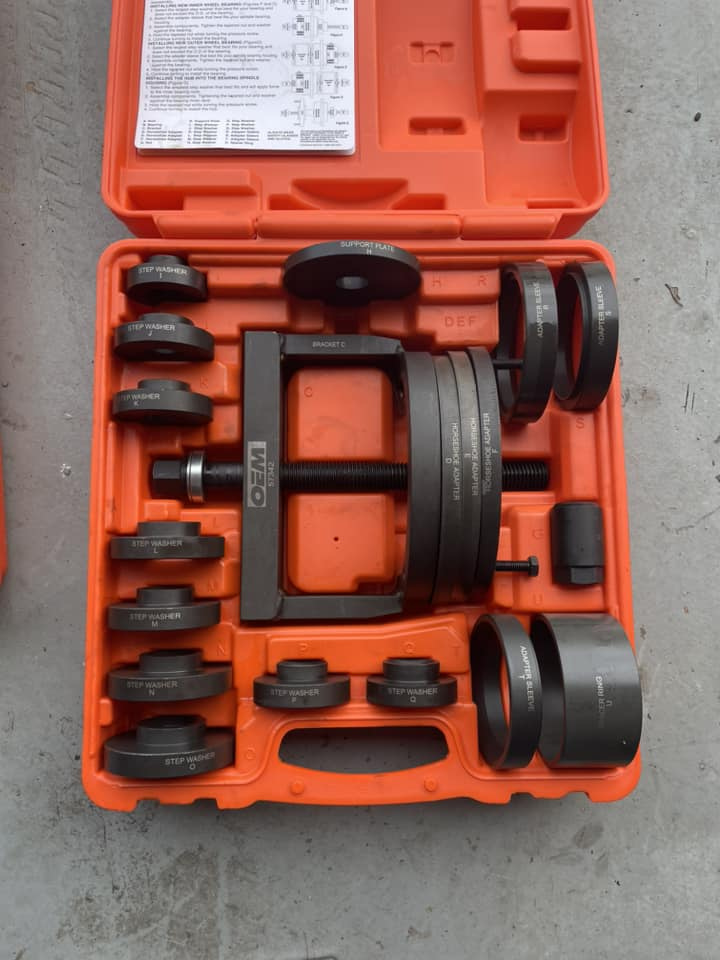When it comes to maintaining your vehicle, understanding the costs associated with various repairs can be crucial. One such repair that often raises questions is the replacement of wheel bearings. Whether you're dealing with a rear wheel bearing replacement on a classic model or a modern luxury car, knowing what to expect in terms of cost can help you make informed decisions. This comprehensive guide delves into the intricacies of wheel bearing replacement costs, offering insider tips to help you save money.
In this article, we will explore the factors influencing the cost of wheel bearing replacements, from labor charges to part prices, and provide insights based on real-world examples. By the end, you'll have a clearer picture of what constitutes a fair price for this type of service and how to avoid being overcharged. Let's dive into the details and uncover strategies to manage these expenses effectively.
Understanding Rear Wheel Bearing Replacement Costs
Rear wheel bearing replacement costs can vary significantly depending on the vehicle model and year. For instance, quotes for a rear wheel bearing on vehicles from 1990 to present may range between $500-$700. This includes both the cost of the bearing and seals. If you own a 1998 Legacy OBW and need a rear wheel bearing replacement, consider bringing in your own parts to reduce costs.
A local repair shop familiar with your vehicle can provide valuable insights into labor rates. Typically, labor might be quoted at around 3 hours, translating to approximately $204. However, these figures can fluctuate based on the specific requirements of your vehicle and the expertise of the mechanic.
It's essential to research and compare quotes from different shops to ensure you're getting a fair deal. Additionally, inquire about warranties on both parts and labor to protect your investment in the long run.
Exploring Sprinter Van Repair Costs
For owners of Sprinter vans, particularly the 2500 model, the cost of replacing a rear wheel bearing can also vary. A verbal quote might estimate around $400-500 for a leaky seal replacement. This figure may or may not include the cost of parts, which could necessitate replacing the bearing as well.
Engaging with community forums can provide useful insights into typical costs experienced by other owners. Sharing experiences and costs can help establish a benchmark for reasonable pricing. It's beneficial to gather multiple quotes and understand what each includes before making a decision.
Consider the reputation and reliability of the repair shop when evaluating costs. Sometimes, paying slightly more for a reputable service can save you from future complications and additional expenses.
Analyzing BMW Wheel Bearing Replacement Expenses
BMW owners, especially those driving an F82 M3 or M4, might face significant costs when replacing wheel bearings. The dealership might quote upwards of $1351 for the service, while online research suggests an average cost around $700 for similar models like the 328i.
The disparity in pricing highlights the importance of exploring alternative service providers. Independent mechanics who specialize in BMWs might offer competitive rates without compromising quality. Always verify their credentials and seek recommendations from fellow BMW owners.
Remember to factor in any potential warranty coverage that could offset some of these costs. Understanding your options fully can lead to substantial savings.
Evaluating General Wheel Bearing Replacement Prices
Across various makes and models, the cost of wheel bearings themselves typically ranges from $50 to $120, while a new wheel hub can cost between $200 and $500. These components play a critical role in ensuring smooth vehicle operation, so choosing quality parts is vital.
For example, if your front wheel bearings need replacement, estimates from local mechanics might average around $500. This price encompasses both parts and labor. However, it's prudent to verify these numbers through multiple sources to ensure accuracy.
Additionally, keep an eye out for seasonal discounts or promotions offered by repair shops, which could further reduce the overall expense.
Assessing Dealer vs. Mechanic Pricing
The cost of paying a dealership versus an independent mechanic for wheel bearing replacement can differ substantially. Dealerships often charge higher rates due to brand-specific expertise and parts, but they may also offer extended warranties or guarantees.
On the other hand, independent mechanics might provide more competitive pricing, especially if they use aftermarket parts. It's important to weigh these factors against your specific needs and preferences. Some drivers prioritize convenience and peace of mind, opting for dealerships despite higher costs.
Ultimately, gathering detailed quotes and understanding the scope of work involved will empower you to make the best choice for your vehicle and budget.
Examining BMW 3-Series Wheel Bearing Issues
In the case of BMW 3-Series vehicles, wheel bearing failures can lead to costly repairs. For example, a wheel bearing replacement might be priced at £407, or you could opt for coverage under an extended warranty, reducing your out-of-pocket expense to £250.
Extended warranties can be a worthwhile investment if utilized correctly. They mitigate unexpected repair costs and provide assurance against future issues. Assess your vehicle's condition and history to determine whether purchasing such a warranty aligns with your financial strategy.
Always document all repair work and associated costs meticulously. This documentation serves as a reference for future maintenance and can be invaluable during resale negotiations.

